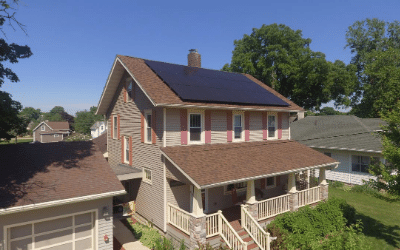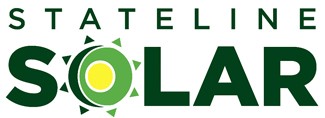SOLAR FINANCING
Save the Planet Without Breaking the BankSolar Financing Information
Get your solar project financed without the hassle!
Stateline Solar offers solar financing through German American State Bank. From the solar experts you know to the bank you trust, you can finance your solar project online at germanamericanstatebank.com
Not sure how much your system will cost? Get a free quote from Stateline Solar!


Interested in filling out a solar loan application? Fill out this downloadable form and email it to loanops@germanamericanstatebank.com or drop it off at any of the German American State Bank locations in German Valley, Pecatonica, Winnebago, or Seward.
Or apply online through German American State Bank:
*Loans subject to approval. Qualifications and rules apply. Offer subject to change without notice. See a German American State Bank representative for details. Member FDIC, Equal Housing Lender.

How Much Does Solar Cost?
No two solar arrays are the same. We take your power bill and customize your system to your electrical needs to ensure your solar array optimizes the suns full potential and you save money!
Netmetering
At the end of the month, if you
30% Federal Investment Tax Credit (ITC)
A tax credit is a dollar-for-dollar reduction in the income taxes that a person or company claiming the credit would otherwise pay the federal government. The Inflation Reduction Act of 2022 extended the ITC at 30% for residential solar projects until 2033. Commercial solar projects are extended at 30% until 2025. Thereafter, the Department of Treasury will determine the commercial ITC based on if the carbon reduction goals have been met.
This is a fantastic solar tax incentive for taxpaying entities to take advantage of—while it remains available!
Illinois Solar Renewable Energy Credits (SRECs)
In Illinois and other select states, SRECs provide an outstanding solar incentive that helps an owner recoup a solar system’s investment. SRECs have been created to help States meet Renewable Portfolio Standards (RPS) which set goals for generating a percentage of that state’s overall electricity from renewable energy. In Illinois, for example, an SREC can potentially cover 20% to 40% of the total solar investment.
Typically, one SREC equals 1,000 kilowatt-hours (kWh) of solar energy generated.
If your state does not have an SREC program, your project may still be eligible to sell the SRECs that your solar system generates into another State’s market. For example, all states surrounding Illinois such as Missouri, Indiana, Kentucky, Wisconsin, and Iowa can potentially sell their system’s SRECs into the Illinois market.
ComED Smart Inverter Rebate
ComEd offers a Distributed Generation (DG) Rebate program to help you offset the out-of-pocket costs of installing a qualified renewable energy generating system. The DG Rebate is available to ComEd commercial and industrial (C&I) customers that take net metering service or customers taking community supply service and
5-Year Accelerated Depreciation (MACRS)
The Modified Accelerated Cost Recovery System (MACRS), established in 1986, is a method of depreciation in which a business’ investments in certain property are recovered, for tax purposes, over a specified time period through annual deductions.
The IRS has classified solar PV equipment as 5-year property, allowing a commercial taxpaying entity the ability to expense or write-off a solar investment quickly. The added tax deduction can help further boost a solar project’s return on investment (ROI). NOTE: your project might qualify for even faster write-off using Section 179 depreciation allowances. Congress frequently tampers with the Section 179 limits and your tax professional should guide you accordingly.
USDA REAP Grant for Small Businesses
For small rural businesses, a USDA REAP grant can potentially provide grant funding for renewable energy projects (wind or solar) or energy-efficiency retrofits. These grants also provide loan guarantees used to finance energy projects.
If a business is located in a rural area with a population size under 50,000—and also meets the definition of “small business”—the USDA REAP grant can provide up to 25% in grant funding. Even businesses with several hundred employees can potentially meet the definition of “small business.” This grant is highly
Get A Quote!
All it takes is a copy of your power bill!
